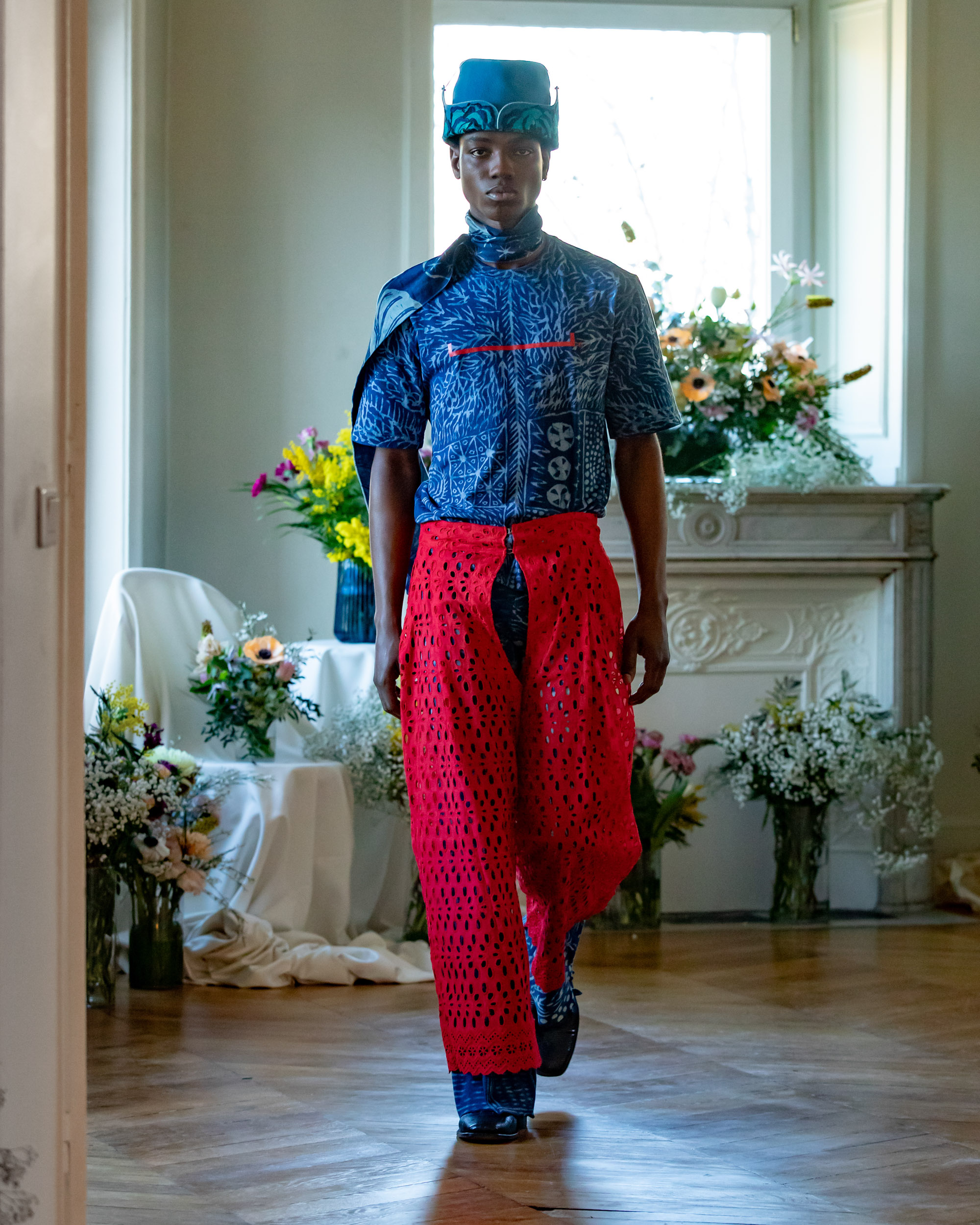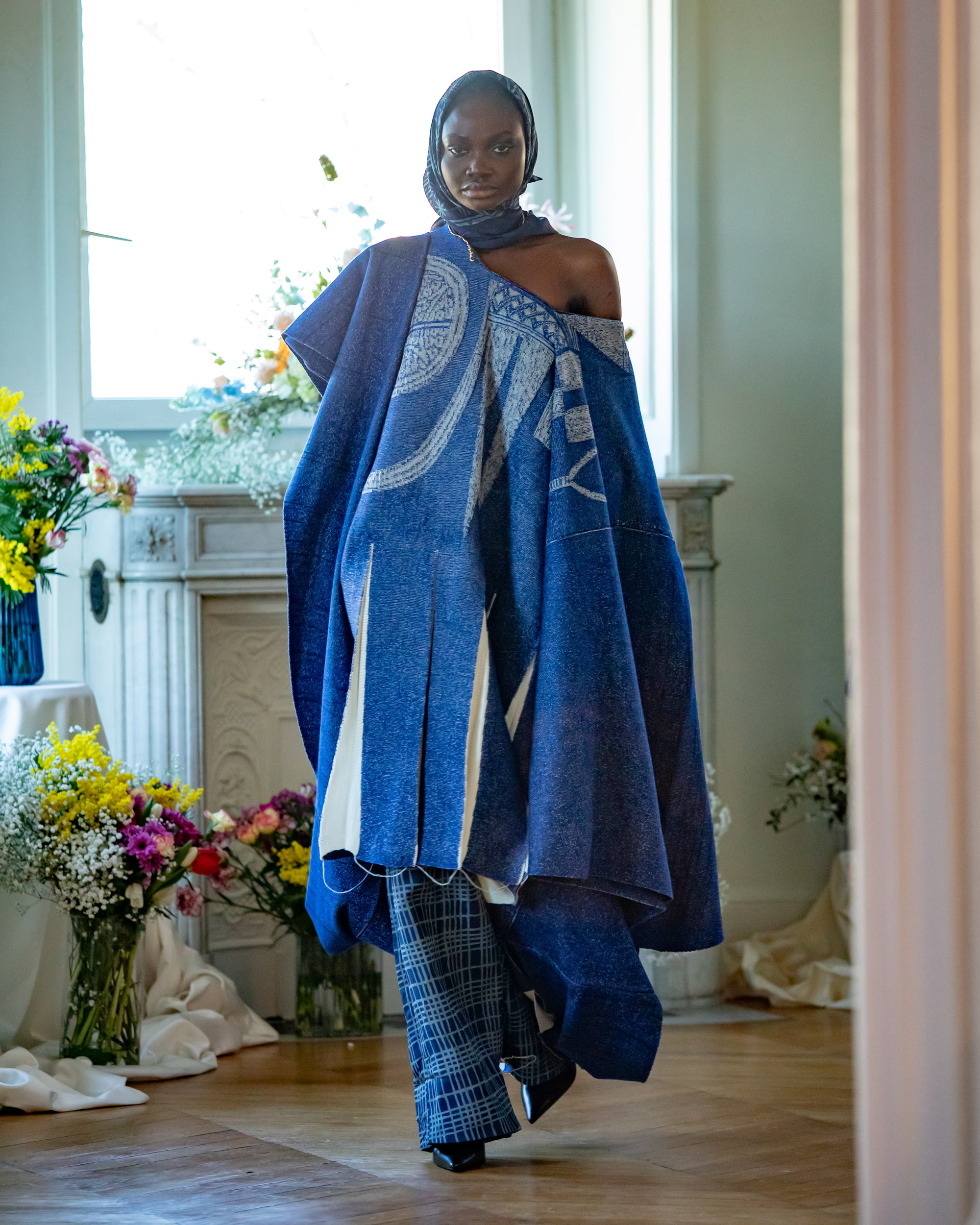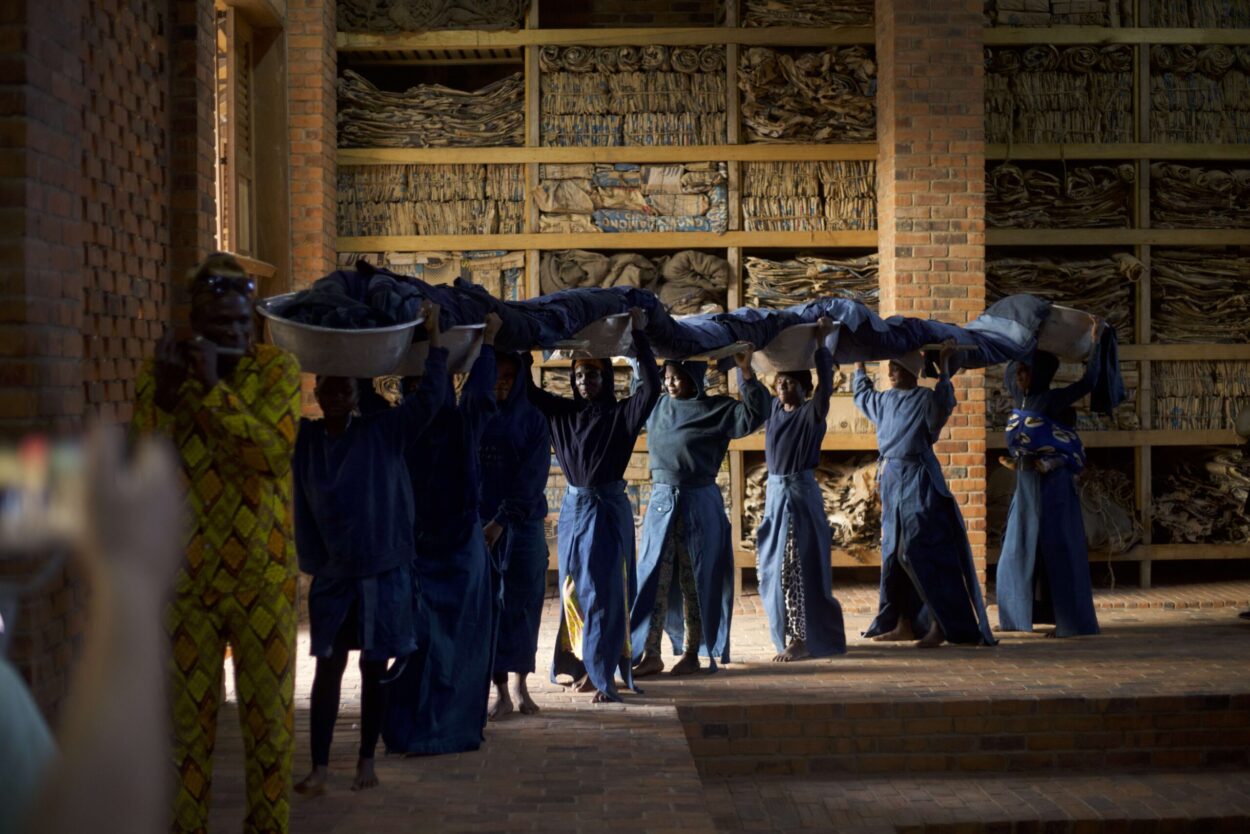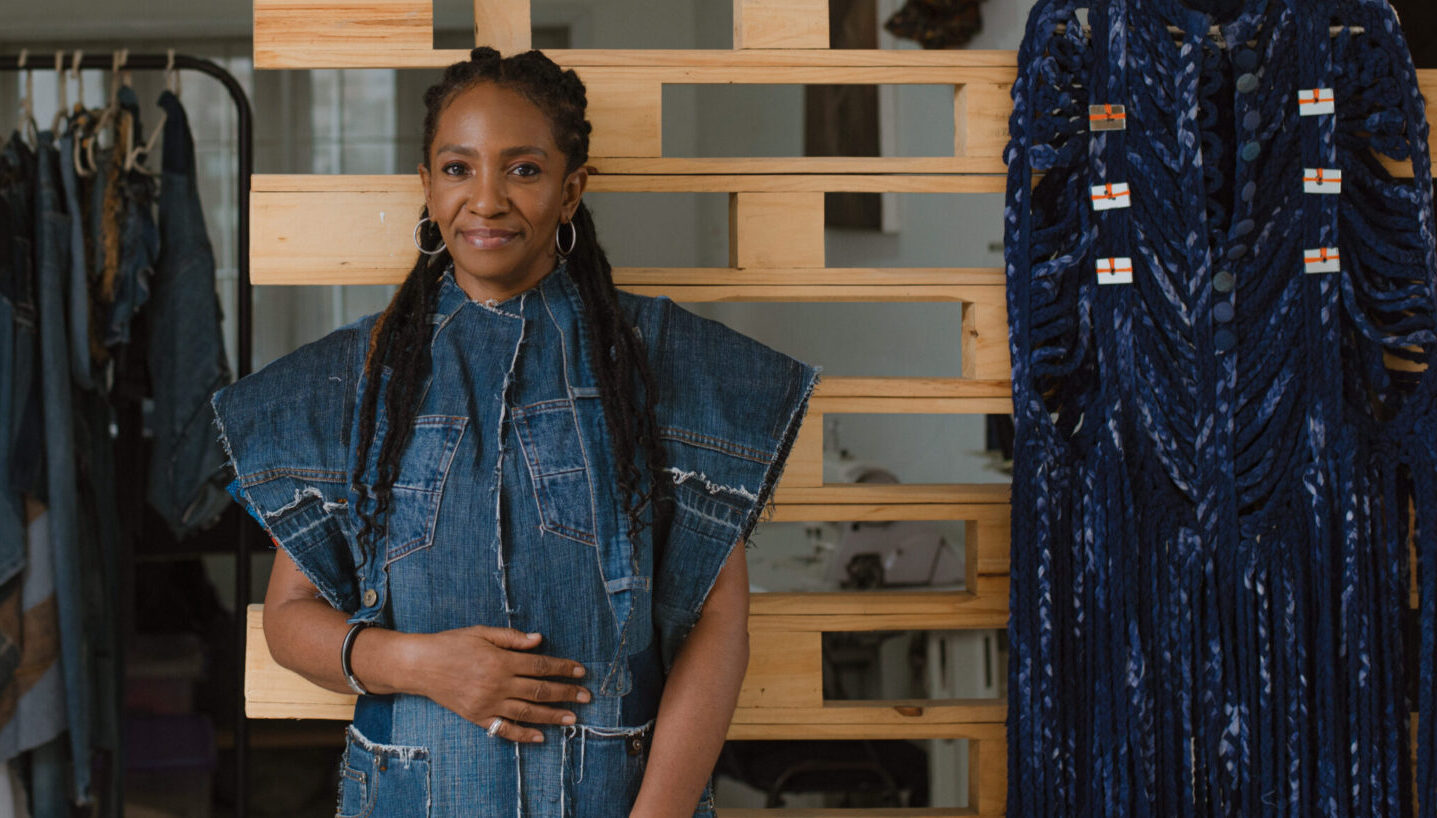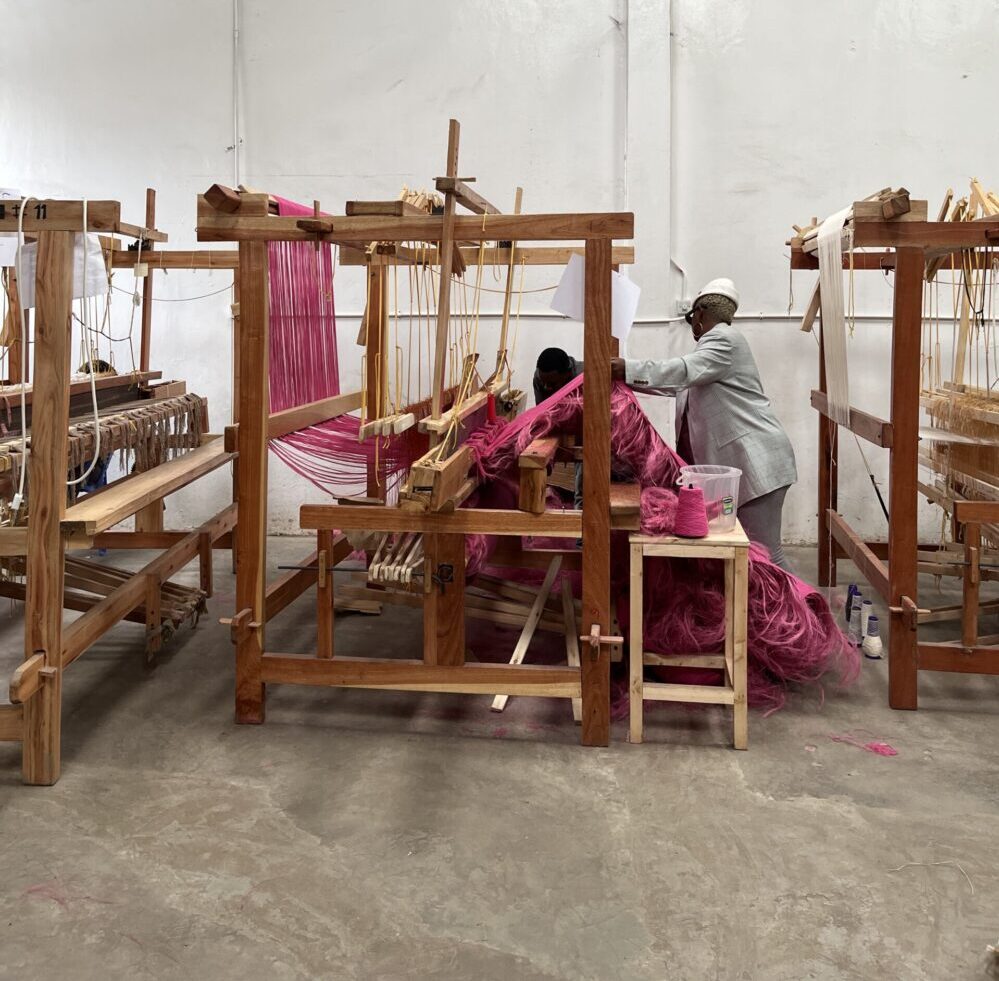Adeju Thompson on the art of post-adire and using cloth as a queer archive
Last year was a vibe for Adeju Thompson. The creative force behind Lagos Space Programme won both the Woolmark Prize and Fashion Trust Arabia Emerge Prize and began showing at Paris Fashion Week. These milestones are well-earned for this multidisciplinary artist who has been honing his brand’s visual language since 2018 and remains committed to building a queer archive through an evolution of Yoruba dress codes. “I’m pushing a vision of Nigeria rooted in the modern world – of living in Africa now and consuming all kinds of cultures – and yet still highlighting our progressive precolonial histories,” he explains. “A lot of conversations around gender and sexuality are monopolised by the West but I can show that Africa has contributed in a very parallel conversation. It’s about breaking misconceptions and producing work that is truly global.”
Central to this vision is Thompson’s commitment to West African artisanship and harnessing these crafts as tools for activism. His interrogation of adire eleko, the indigo resist-dyed textile, becomes post-adire as his team in Lagos meticulously hand draw his motifs onto cloth using the traditional feather brush method, and then send it to a family of dyers in Abeokuta, Ogun State. “Adire is very much a fine art, a way to tell your story through fabric. It’s also a dying craft,” he says. “I’m working with the best of the best, people who have been trained by master dyers, because it deserves that respect. And then I move the storytelling forward by incorporating queer semiotics to speak for myself and to my community.” Similarly, he works with a seventh-generation bronze caster in Benin to produce statement adornments. “There’s a curiosity on both sides to bring our ideas together to come up with very interesting forms.”
“Nigerian fashion has always been circular. It’s not a radical idea. It’s ingrained in how we dress”
